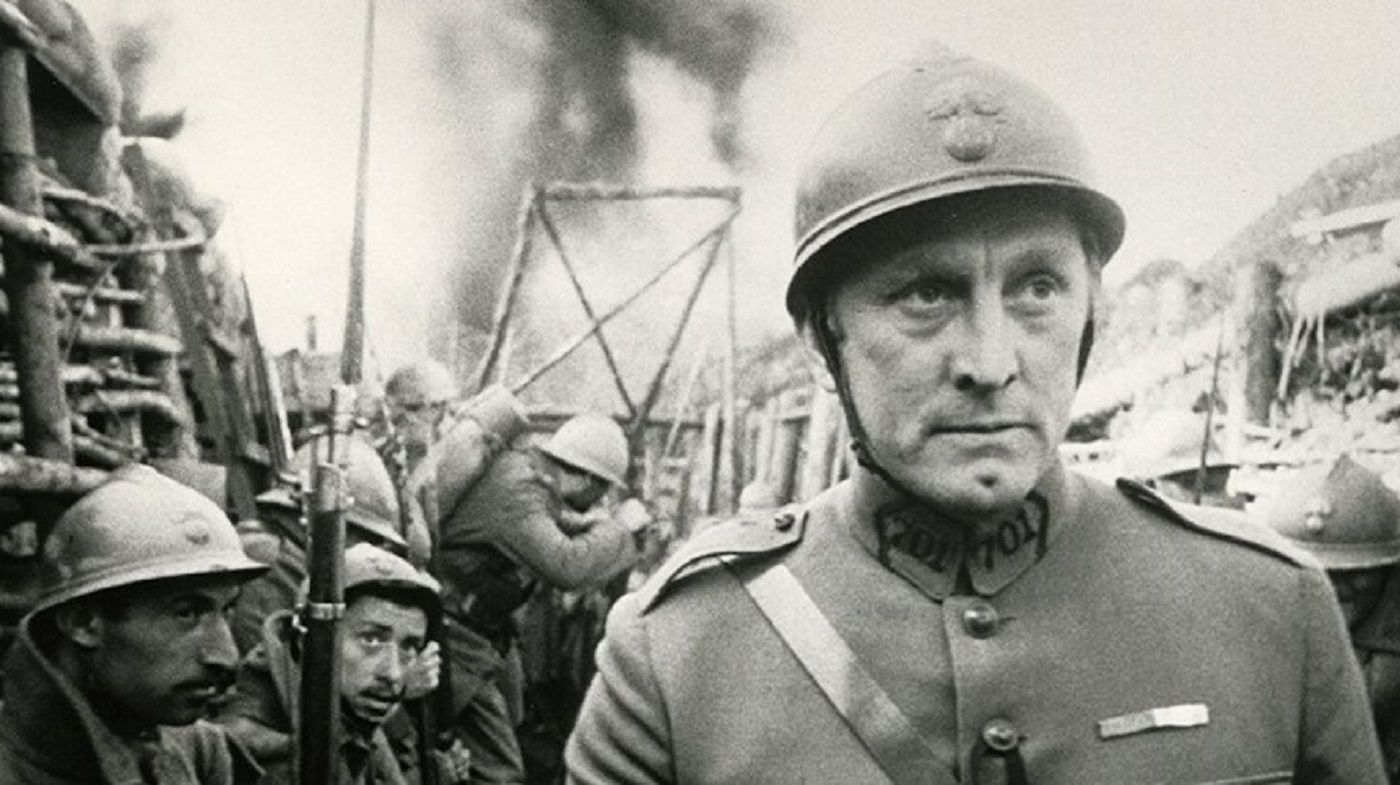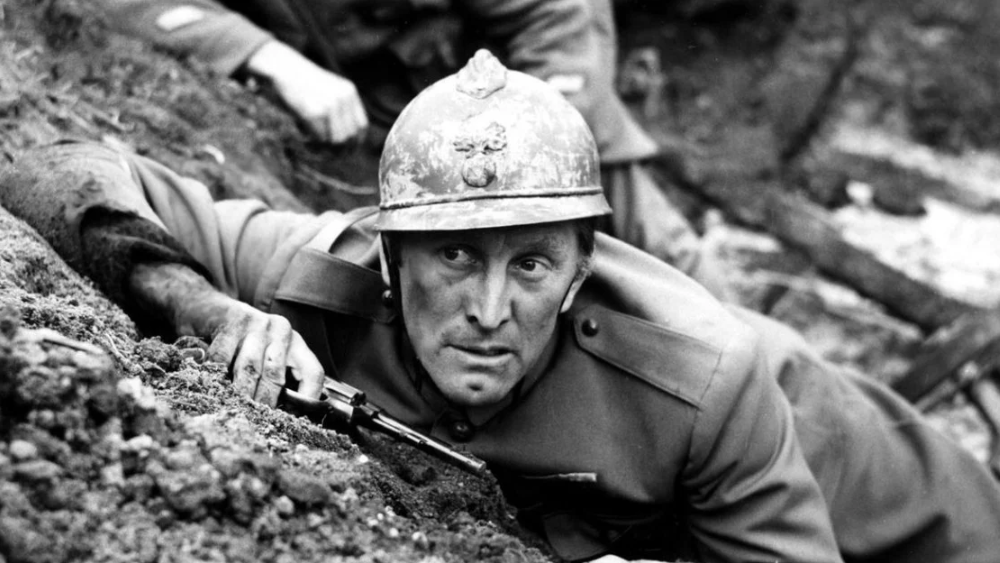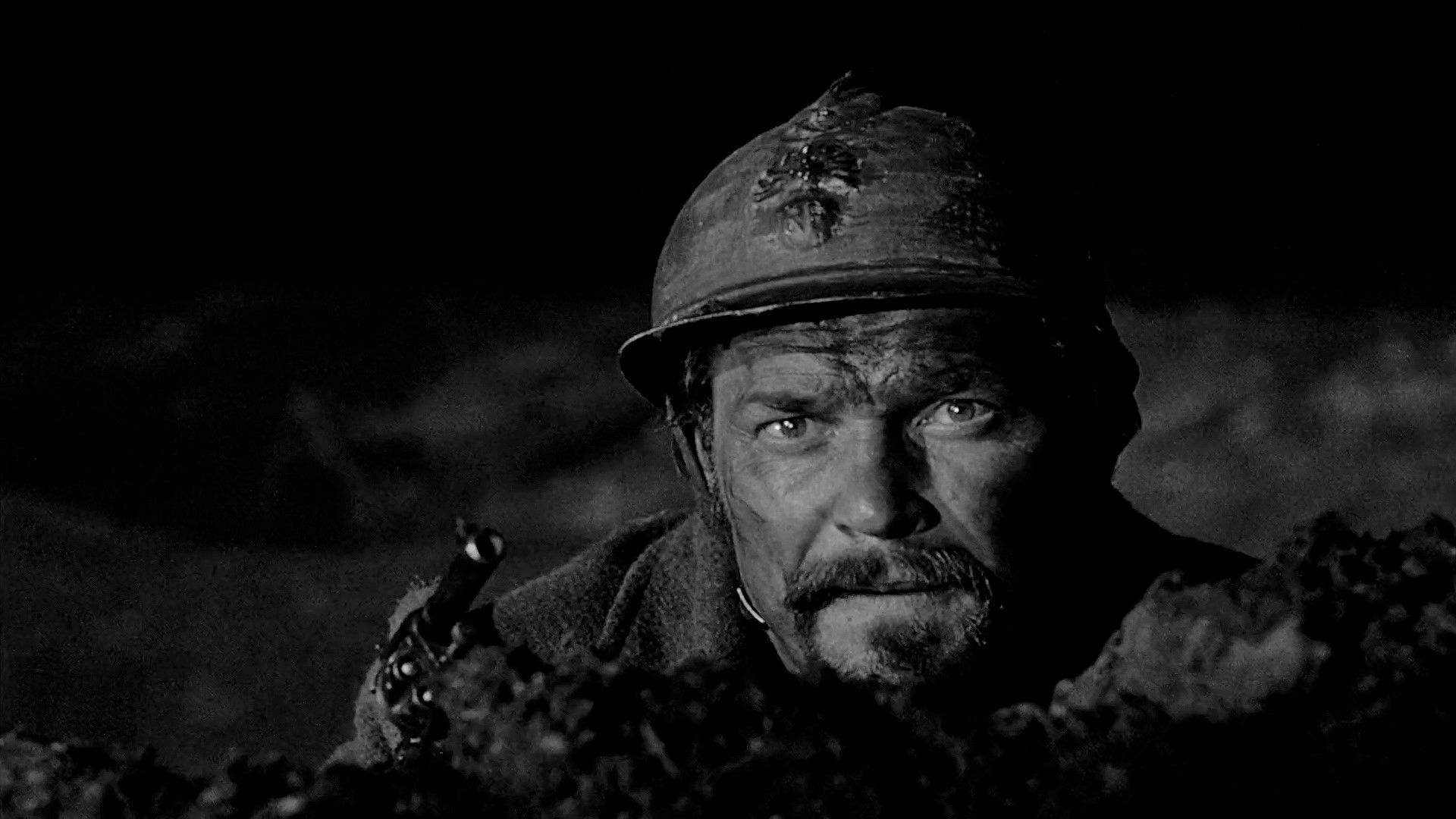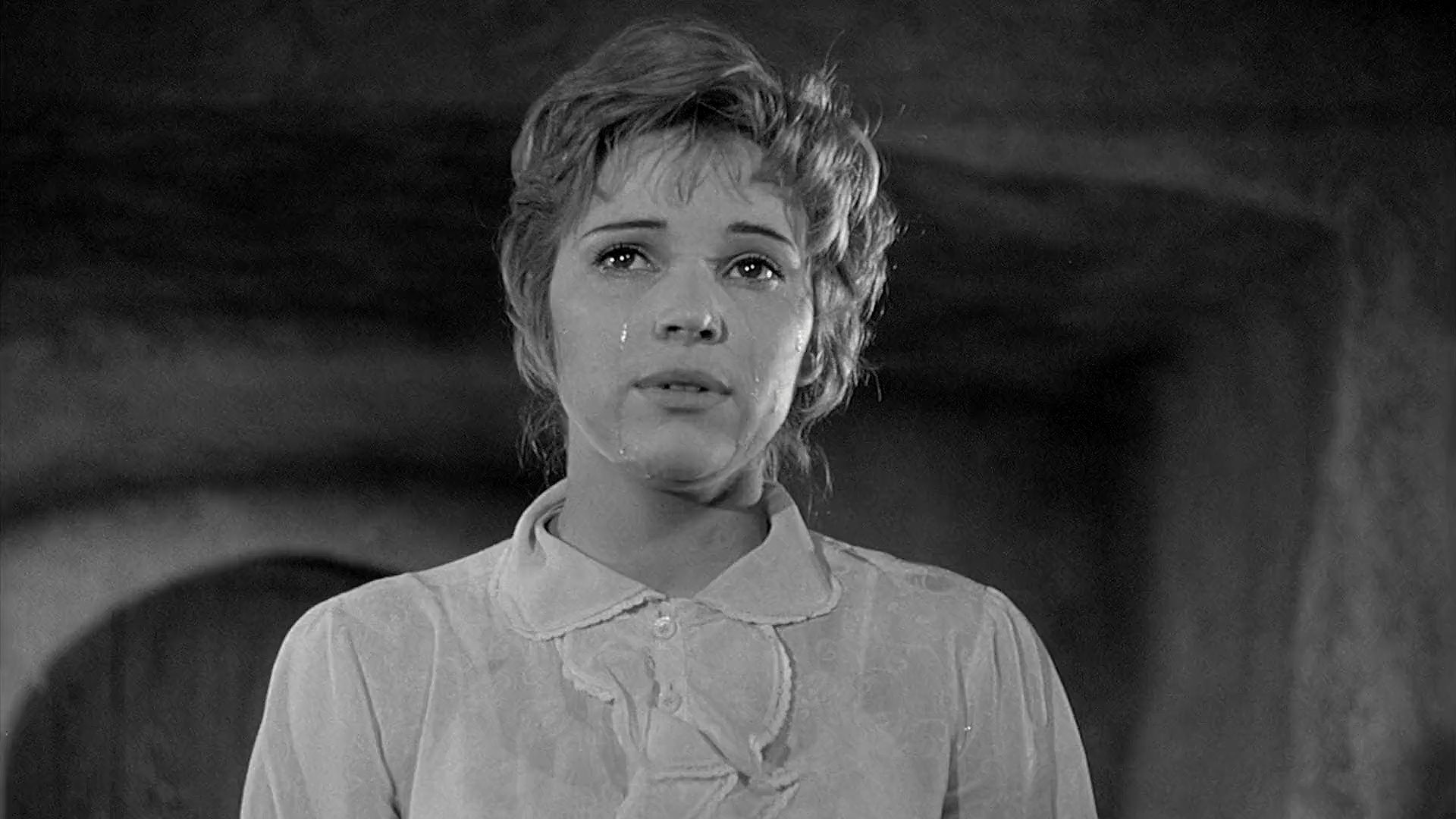When one thinks of a director as iconic as Stanley Kubrick many thoughts come to mind, a visionary, a pioneer, a cold cynical New Yorker, who was maybe a bit eccentric. The rumor mills, curious whispers, and general notions about Kubrick have perpetuated many myths and tall tales about the man, most of which have little basis in fact. One such notion is that Kubrick’s films are often regarded as being cold or emotionally removed. It’s perhaps a by-product of Kubrick’s penchant for a more philosophical and technical approach to narrative, as can be especially seen in Lolita, Dr Strangelove, 2001: a space odyssey, Barry Lyndon, A Clockwork Orange, The Shining, Full Metal Jacket, and Eyes Wide Shut. But this alleged coldness is a total misconception of Kubrick’s entire oeuvre. At the core of each Kubrick film is a deep-rooted sense of social responsibility and empathy, and this is perhaps most clear in Kubrick’s moving first world war drama, Paths of Glory.
Paths of Glory was first released in 1957, and it’s a film that really confirmed Kubrick as a Wunderkind and a visionary director. The film is loaded with a warmth and love for humanity, it’s practically bursting off the screen with every frame. Kubrick’s film visually pays homage to the great German auteur director Max Ophuls who is often celebrated for his powerful and emotionally arresting melodramas. Paths of Glory really is a testament to the unwavering humanity and fortitude of the human spirit. This is Kubrick at his most humanistic. Every inch of this film is filled with a potent yearning for justice and celebrates the quest for truth. It’s through the journeys of the different characters in the film that a powerful sense of humanity is revealed. The same indeed is true for Kubrick, whose camera becomes his weapon of choice in illuminating his unwavering affection for his characters on screen.
Colonel Dax — Kirk Douglas
In the film, Kirk Douglas stars as a French man, Colonel Dax, a lawyer turned soldier who is ordered by General Mireau to undertake an impossible mission, and lead his men in taking the enemy-controlled Anthill. George Macready plays the role of General Paul Mireau, who is driven by avarice and the promise of promotion. But when Dax’s men are overwhelmed by the enemy, many retreat and seek cover in the trenches.
Dax has loyalty to his men that extends beyond his own personal needs. When Mireau first asks him to take the Anthill, Dax suggests it can’t be done. Mireau immediately tries to separate Dax from his men, by placing him on forced leave. Dax knows his men will be brought by someone else, and concedes, and offers to lead his men in seizing Anthill. Dax’s character really is a humanist to the core, and he strives to protect his men, no matter what and feels they will be safer under his command.
When the attack is underway, Dax leads the charge past explosions, mortar, and shrapnel. He fearlessly goes forward until it becomes clear they can’t get any further. Soldiers have dropped like flies and the explosions and bullets keep flying. Dax and his men are trapped in a trench with no prospect of success. At this moment, Dax accepts defeat as he is unprepared to sacrifice the lives of any more of his men.
After the failure of Anthill, General Mireau is embarrassed and falsely accuses three men of treason and cowardice, they face a court hearing and potential execution. The soldiers accused are Corporal Phillipe Paris (Ralph Meeker), Private Pierre Arnaud (Joe Turkel) and Major Saint- Auban (Richard Anderson). The Colonel is overwhelmed by the injustice of Mireau’s need to punish the soldiers for being unable to achieve the impossible. Dax is repulsed by Mireau’s willingness to sacrifice the lives of good men so trivially. Dax’s determination to seek justice for his men, reveals his humanity. He has a fraternal love and respect for his men and deeply values their lives. Dax’s desire to protect his men continues even after they have lost the battle. Dax approaches the men in their cell and explains to them that he will represent them legally.
But the hearing is nothing less than a show trial, and the result is predetermined, and Dax is given little opportunity to make anything remotely like a fair case. Objections are made when Dax starts citing the accused men’s previous military achievements as a defense to the accusation of cowardice. Dax makes note of the unfairness of the court and the irregularity of the proceedings, such as not having a stenographer present. Dax powerfully alludes to the court proceedings as a mockery of Justice, and he isn’t wrong.
Colonel Dax’s struggle for truth and justice in the face of blatant corruption fills Kubrick’s film with an overwhelming sense of emotion and humanity. While Dax’s character’s journey is perhaps the most significant in the film, other characters play an important role and reinforce the notion of Kubrick as a humanist.
Corporal Phillipe Paris — Ralph Meeker
One such character is Corporal Phillipe Paris, who, prior to the Anthill battle, was sent on a scouting mission through no man’s land with his commander Lieutenant Roget and another soldier. During the mission, Roget panicked and blindly threw a grenade and fled abandoning Paris. Paris however survives and confronts Roget with the knowledge that his grenade killed their fellow soldier. Roget denies this at first, and then tries to use his position to intimidate Paris into silence. The blatant injustice of Roget and the manner in which this is directed towards Paris are enraging. It’s through this confrontation that Paris expresses a clear ambition for truth and justice. Paris’s honesty makes him a target for Roget, so when Roget has to select a man to be tried after the failure of Anthill he selects Paris.
Paris’s arc inarguably is driven by a quest for truth and justice and in doing so exposes the humanity of Kubrick as a filmmaker. Additionally, Kubrick’s use of extended tracking shots gives a visceral urgency to his characters. One only has to think of the camera roaming through the trenches in long unbroken takes, or those off-kilter close-ups, in which Kubrick shines a light on humanity, the good, the bad, and everything in between. Of course, Kubrick saves the best till last and the last scene is a triumphant ode to the human need to live in hope and shine a light on darkness.
German Singer — Christiane Kubrick
The film ends with a moment of breathtakingly simple humanity. Colonel Dax is distraught after the needless execution of his men. He passes the army bar and goes inside, where a local German girl stands on stage. She’s from the enemy country, she’s noticeably frightened in front of this room of strange French soldiers. All the men eye her intently. But when she starts to sing in German, the beauty and honesty of her voice transcend any differences between her and the men, who are enamored and stare in tears of awe. This moment is perhaps the most important moment in the film and makes the clearest possible case in support of Kubrick’s undeniable sense of humanity. Paths of Glory is ultimately an anti-war film and shows that war is a process which dehumanizes people, and suggests that the only way to survive is to love and respect your fellow man.




